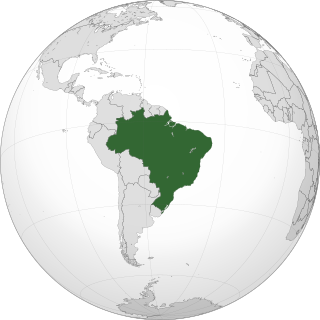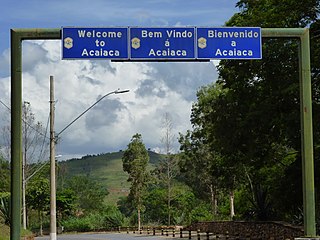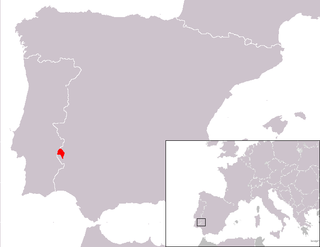
Portuguese is a Western Romance language of the Indo-European language family originating from the Iberian Peninsula of Europe. It is the official language of Portugal, Brazil, Cape Verde, Angola, Mozambique, Guinea-Bissau and São Tomé and Príncipe, and has co-official language status in East Timor, Equatorial Guinea, and Macau. Portuguese-speaking people or nations are known as "Lusophones". As the result of expansion during colonial times, a cultural presence of Portuguese speakers is also found around the world. Portuguese is part of the Ibero-Romance group that evolved from several dialects of Vulgar Latin in the medieval Kingdom of Galicia and the County of Portugal, and has kept some Celtic phonology.

João de Barros, nicknamed the "Portuguese Livy", is one of the first great Portuguese historians, most famous for his Décadas da Ásia, a history of the Portuguese in India, Asia, and southeast Africa.

The Community of Portuguese Language Countries, also known as the Lusophone Community, is an international organization and political association of Lusophone nations across five continents, where Portuguese is an official language. The CPLP operates as a privileged, multilateral forum for the mutual cooperation of the governments, economies, non-governmental organizations, and peoples of the Lusofonia. The CPLP consists of 9 member states and 33 associate observers, located in Europe, South America, Asia, Africa and Oceania, totaling 38 countries and 4 organizations.

Brazilian Portuguese is the set of varieties of the Portuguese language native to Brazil and the most influential form of Portuguese worldwide. It is spoken by almost all of the 203 million inhabitants of Brazil and spoken widely across the Brazilian diaspora, today consisting of about two million Brazilians who have emigrated to other countries. With a population of over 203 million, Brazil is by far the world's largest Portuguese-speaking nation and the only one in the Americas.
Talian, or Brazilian Venetian, is an Italian dialect from the Veneto region, spoken primarily in the Serra Gaúcha region in the northeast of the state of Rio Grande do Sul in Brazil. It is also spoken in other parts of Rio Grande do Sul, as well as in parts of Espirito Santo and of Santa Catarina.

Aurélio Buarque de Holanda Ferreira was a Brazilian lexicographer, philologist, translator, and writer, best known for editing the Novo Dicionário da Língua Portuguesa, a major dictionary of the Portuguese language.
Brazilian Sign Language is the sign language used by deaf communities of Brazil. It is commonly known in short as Libras.

Portuguese is the official and national language of Brazil being widely spoken by most of the population. Brazil is the most populous Portuguese-speaking country in the world, with its lands comprising the majority of Portugal's former colonial holdings in the Americas.

Gender neutrality in languages with grammatical gender is the usage of wording that is balanced in its treatment of the genders in a non-grammatical sense. For example, advocates of gender-neutral language challenge the traditional use of masculine nouns and pronouns when referring to two or more genders or to a person of an unknown gender in most Indo-European and Afro-Asiatic languages. This stance is often inspired by feminist ideas about gender equality. Gender neutrality is also used colloquially when one wishes to be inclusive of people who identify as non-binary genders or as genderless.

Mozambican Portuguese refers to the varieties of Portuguese spoken in Mozambique. Portuguese is the official language of the country.

In Spanish, grammatical gender is a linguistic feature that affects different types of words and how they agree with each other. It applies to nouns, adjectives, determiners, and pronouns. Every Spanish noun has a specific gender, either masculine or feminine, in the context of a sentence. Generally, nouns referring to males or male animals are masculine, while those referring to females are feminine. In terms of importance, the masculine gender is the default or unmarked, while the feminine gender is marked or distinct.
Transgender rights in Brazil include the right to change one's legal name and sex without the need of surgery or professional evaluation, and the right to sex reassignment surgery provided by Brazil's public health service, the Sistema Único de Saúde.
Caipira is a Portuguese dialect spoken in the rural areas of the State of São Paulo and adjacent parts of neighbouring Mato Grosso do Sul, Goiás, Minas Gerais, and Paraná.

Phabullo Rodrigues da Silva, known professionally as Pabllo Vittar, is a Brazilian drag queen and singer.
Neopronouns are neologistic third-person personal pronouns beyond those that already exist in a language. In English, neopronouns replace the existing pronouns "he", "she", and "they". Neopronouns are preferred by some non-binary individuals who feel that they provide options to reflect their gender identity more accurately than conventional pronouns.
Elle is a proposed non-normative personal pronoun in Spanish intended as a grammatically ungendered alternative to the third-person gender-specific pronouns él ("he"), ella ("she") and ello ("it").
Mário Alberto Perini is a Brazilian linguist known mainly for his work on the description of Brazilian Portuguese. He is professor emeritus at the Federal University of Minas Gerais; he has also taught at the University of Illinois and at the University of Mississippi. In 2021, Perini was elected Honorary Member of the Brazilian Linguistics Association.
Maria Helena de Moura Neves was a Brazilian linguist known for her work on language use, especially functional approaches to Portuguese grammar. She also conducted research on the history and teaching of grammar. She was professor emerita at São Paulo State University, and also lectured at Mackenzie Presbyterian University. In 2022 she received the Ester Sabino Award in the Senior Researcher category.
Onu is a neopronoun in the Polish language intended as a gender-neutral pronoun, and an alternative to the gender-specific pronouns on ("he"), and ona ("she"). It is not officially accepted by the Polish Language Council.

Oliventine Portuguese is the dialectal variety of the Portuguese language natively spoken in the municipalities of Olivença and Táliga, in Extremadura (Spain). Currently, the Portuguese of Olivença and Táliga is not recognized by Spain, which has administered this territory since the War of the Oranges in 1801. Portugal, however, does not recognize Spanish sovereignty over the region and claims it as its own.











